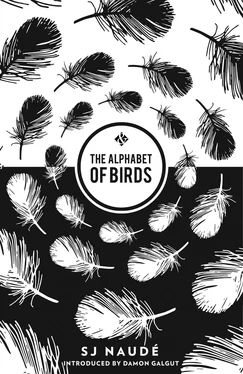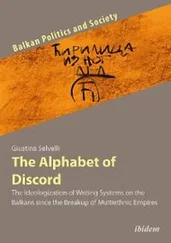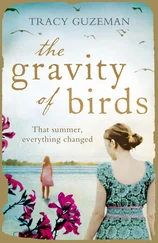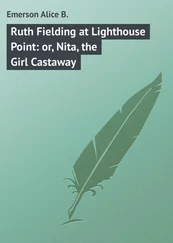That evening, when they are out walking, two Vietnamese girls on a scooter drive right up to them on the pavement and offer themselves in shrill tones, shouting out prices in English for a menu of obscene acts. He holds himself aloof to get rid of them, but Hisashi banters with them. Hisashi confuses them because he looks vaguely Vietnamese, but doesn’t speak Vietnamese. The situation becomes increasingly uncomfortable. He walks ahead on his own. The girls heckle him from behind.
Later, back in the hotel, he takes a shower. When he comes out of the bathroom, Hisashi is sitting on the bed wrapping a few trinkets that he has bought on a street somewhere. When he comes closer, he sees that the strips of paper being used for the wrapping are torn from the propaganda poster he bought earlier.
‘What the hell, Hisashi?’
He mentions what he paid for the poster. Hisashi looks astonished, hurt.
‘Thought it was just a piece of newspaper. Forgive me.’
Hisashi remains sheepish for the rest of the evening. The Japanese man makes himself small, watching him furtively. He withholds forgiveness.
He is relieved when they leave Hanoi, but he resents not being on his own. He doubts whether they will complete this trip together.
A respite, a fragile ceasefire. He makes his mother’s bed with her best linen. A handwoven blanket, white as snow. Things she has not used since her wedding day. Up to now she has been sleeping on the sheets on which his father died a few years before.
He washes her hair. Every thirty seconds she has to take a break. He holds her hand mirror in front of her while she brushes her hair and applies make-up, for the first time in a week. She rests between every movement. He rubs foundation lightly over her upper cheek with his forefinger. His stupid fingers are becoming cleverer.
Then they intensify, the skirmishes. He tries to veil his attempts at feeding her as an extension of the freshening of the bed. He takes out the best porcelain, silver-coated cutlery. Heirlooms unused not only by his parents, but also their parents. He arranges a delicately embroidered linen cloth on a tray. He does his best with the cooking.
She awaits her tormentor at every mealtime. One can sense the tension in the air when the aromas float from the kitchen to the bedroom.
‘I can’t digest the food,’ she says softly. ‘It’s physically impossible, surely you know that.’
Once or twice, when he feeds her, she does eat a mouthful or two. It gives him an opening, creates a precedent. The battle becomes increasingly determined, the object of it progressively smaller. Now sometimes just a grain of rice, a bread crumb. A sugar crystal.
An unequal battle, he realises. But he does not relent. He towers above the bed, the light behind him. She is lying in his shadow. Her own shadow has already departed.
I will match you, he decides; what you eat, I will eat. Gram for gram. Morsel for morsel.
Sometimes she asks him to put on some music. Always the same. Medieval German church music. He considers trying to get her to ingest something while it is playing. Perhaps her resistance is lowered then. He sees how her face relaxes while she is listening, knows he would be able to catch her unawares with a spoonful, even two. He decides against it. He cannot assail her last redoubt.
He walks out into the garden, looks up.
These days have a barely audible undertone, like the music she listens to, an underlying note that is sustained and trance-inducing. A divine presence is thus made audible, say those who are knowledgeable about such music. He thinks it is the sound of breath forced through the vocal chords while the body is disintegrating. The sound of inconsolability.
They are in a flat-bottomed boat, he and Hisashi, on a wide, brown river. A small, wrinkled chestnut-coloured woman with a Vietnamese straw hat is rowing. Every now and then she jabbers as if they can understand her. Otherwise just silence and water against oars. They are a half-day trip away from Hanoi, in the mountains. The river meanders among massive rock peaks, overgrown with foliage in the mist. Palm trees, water buffalo. The destination is the Perfume Pagoda — the forty-ninth temple. En route they will pass forty-eight other temples. On the banks amidst the bulrushes. On stilts above the water. Between treetops. Against slopes. Simple temples of antique wood, larger ones in the Chinese style. Old and new. One by one they slide past. He is counting.
It is a Buddhist holiday. The river is packed with boats overloaded with pilgrims. On a normal day, the route up the mountain to the cave where the Perfume Pagoda is located takes, say, three-quarters of an hour. Not today. Where they moor, thousands of pilgrims are congregating under strings of small multicoloured flags.
They move with the crowd. Here too everyone seems to think that Hisashi is Vietnamese. He himself is also attracting attention. Some pilgrims have never seen a Westerner. They point at him and laugh, holding their hands in front of their mouths, touching his shaven hair. They think he is a monk, he imagines, or perhaps a thin, pale Buddha, sliding in the mud. He repels the pilgrims’ attention with a stony face. Hisashi is patient and acquiescent, giggling with the people.
The path is becoming steeper, and narrower. He has to cling to the roots of trees. Among the pilgrims there are ancient, shrunken figures. They can hardly stand upright, are being dragged towards the peak by the current of people. Hisashi picks up a child who looks as if she is going to be crushed. She immediately smiles at him, strokes his face.
The path is becoming increasingly slippery. The pressure is forcing the breath from his lungs. Everything is coming to a standstill. The bodies pressed against him smell of something he doesn’t know. A stampeding disaster is imminent, he thinks. And yet an unfamiliar kind of patience and tolerance reigns. The wind is playing through the prayer flags over the path.
‘Enough,’ he says to Hisashi. ‘Meet you at the bottom later.’ He slips and stumbles through the crowd, against the current, to the foot of the mountain.
The world is shrinking. His routes are contracting: from his mother’s bedroom to the kitchen to the garden to his own bedroom. Now and again to a shop. Only the order of the destinations varies.
He is sleeping in the bedroom right above hers. It is only her rising cloudlets of warm breath that hold him up, he thinks in the moment before sleep overtakes him. He holds his own breath. In the morning, when he enters her room, the winter sun is falling over her white sheets. She does not want him to draw the curtains at night; she wants to see the sun for as long as it shines.
When he is not with her, he thinks of her as tumbling — with the sluggish, unnatural movements of an astronaut drifting away from a ship. But that is not how it is. She is just lying there, entirely still, hands under her chin, angled at the wrists like a mouse’s feet. There is a bell to ring when she needs him, but she has never used it. During the night, through his sleep, he listens for the tinkling, should it ever come.
She is saying something. He has to listen with his ear against her lips.
‘Terrible pain,’ she says. ‘Deep. From underneath the foundations, from the soil.’
On a different occasion: ‘A barbel,’ she whispers, ‘in the sludge.’ Nothing further.
He exchanges her morphine plaster for one with a higher dosage, 50 micrograms.
Later that morning, for the first time in more than a week, she asks for food. She would like some cottage pie, she says. A reconciliatory moment, something she can still do for him. Or perhaps it’s a cruel trick, a new tactic. If it is that, it’s working. His chest fills with bright light at the mere thought of her asking for something, even though he knows in his heart of hearts she will not eat it. He goes out to buy tomatoes and potatoes. He drives to the shop at speed, then rushes back. Out of the packed freezer he takes lean mince. He leaves it to thaw in the sun on the veranda.
Читать дальше












